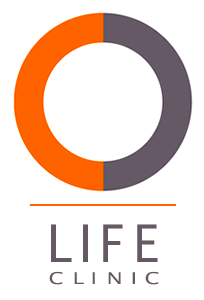Comparing IVF / ART legislation between EU countries

 Assisted reproduction technologies (ART) including IVF have been available for more than three decades, with more than 8 million children born worldwide from ART interventions such as in vitro fertilization (IVF). Laws and policies that regulate ART differ significantly between European countries.
Assisted reproduction technologies (ART) including IVF have been available for more than three decades, with more than 8 million children born worldwide from ART interventions such as in vitro fertilization (IVF). Laws and policies that regulate ART differ significantly between European countries.
How do we easily compare the laws governing IVF and ART procedures in Europe? What are the female ages for legal access to ART? How do countries deal with the anonymity?
A recent article published in the ‘Human Reproduction Open’, journal (Volume 2020, Issue 1) details the different legislation and regulations between 43 European countries (including Greece). The article presents the findings from a joint survey from EIM* and the ESHRE** and offers a detailed view of the ART and IUI situation in European countries. It provides updated and extensive answers to many relevant questions related to ART usage at national level.
The full report of the findings has been published by Calhaz-Jorge, C. et al. You can view it online here.
Here are some key points.
- Embryo donation is not allowed in 14 countries (Austria, Armenia, Belarus, Bosnia and Herzegovina, Bulgaria, Denmark, Iceland, Italy, Kazakhstan, Norway, Slovenia, Sweden, Switzerland and Turkey).
- Egg donation is not permitted in Bosnia and Herzegovina, Germany, Norway, Switzerland and Turkey. Although accepted in Croatia, Ireland, Italy and Montenegro, no local donations are performed.
- PGT for aneuploidies (PGT-A; formerly preimplantation genetic screening) is not permitted in Bosnia and Herzegovina and Malta, as well as in Denmark, France, Germany, Hungary, Lithuania, Norway, Slovenia, Sweden and The Netherlands.
- Surrogacy is allowed in Albania, Armenia, Belarus, Belgium, Cyprus, Czech Republic, Georgia, Greece, Kazakhstan, Macedonia, Romania, Russia, The Netherlands, UK and Ukraine. In Greece, applications for surrogacy must be approved by a Court decision.
- Embryo sex selection (outside PGT-M for sex-linked diseases) is not allowed in any of the 43 countries.
- Access to IVF/ICS in Greece with donated sperm, eggs or embryos is available for heterosexual couples and single women but not single-sex couples.
- The legal limits to ART access in Greece for females is 18-50 years old, for males minimum age of 18 years.
*The European IVF-monitoring Consortium
**European Society of Human Reproduction and Embryology
The European IVF Monitoring (EIM) Consortium was established by ESHRE with the mission to organize an IVF data collection programme for Europe.
For more information about the IVF laws in Greece can be found here.




